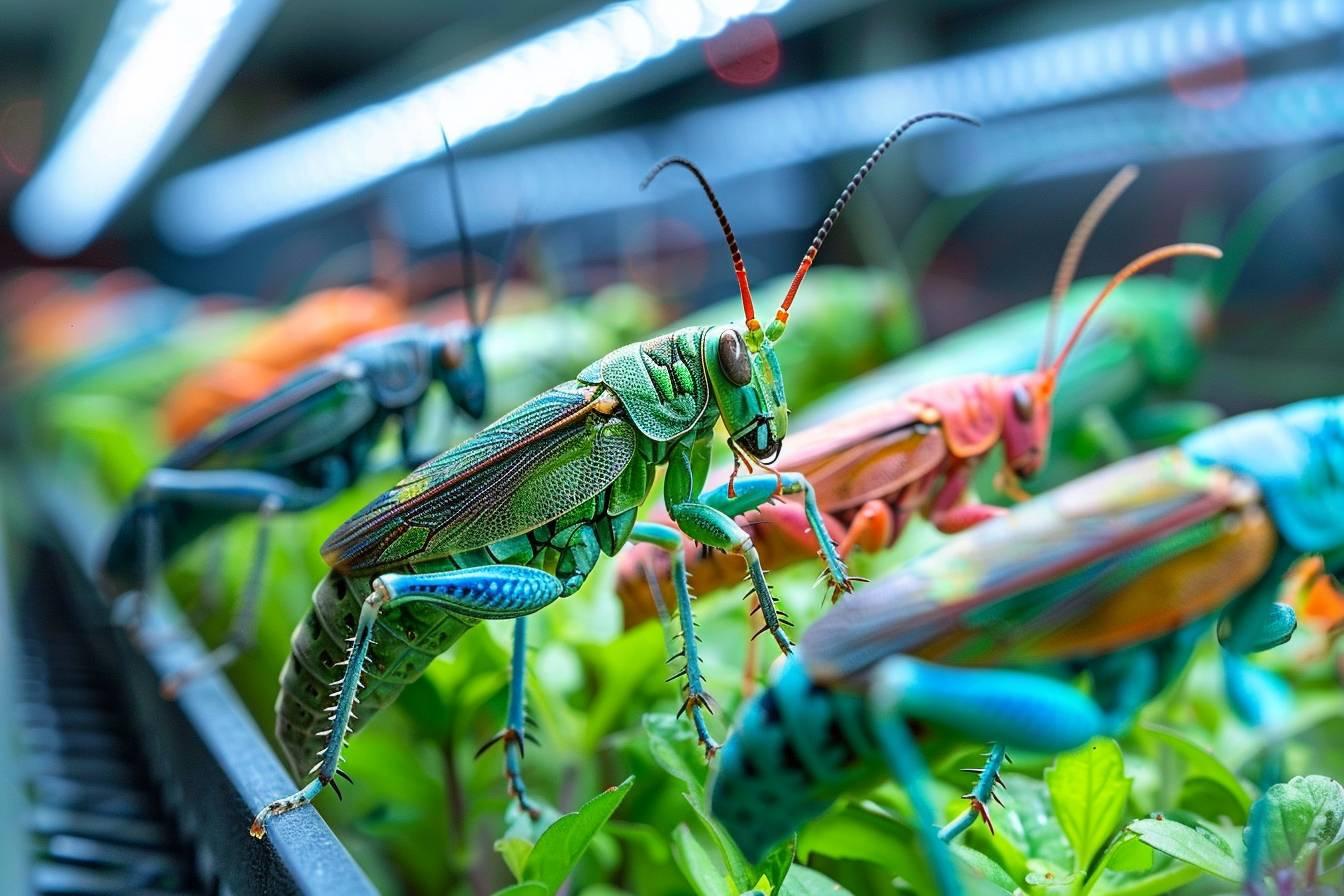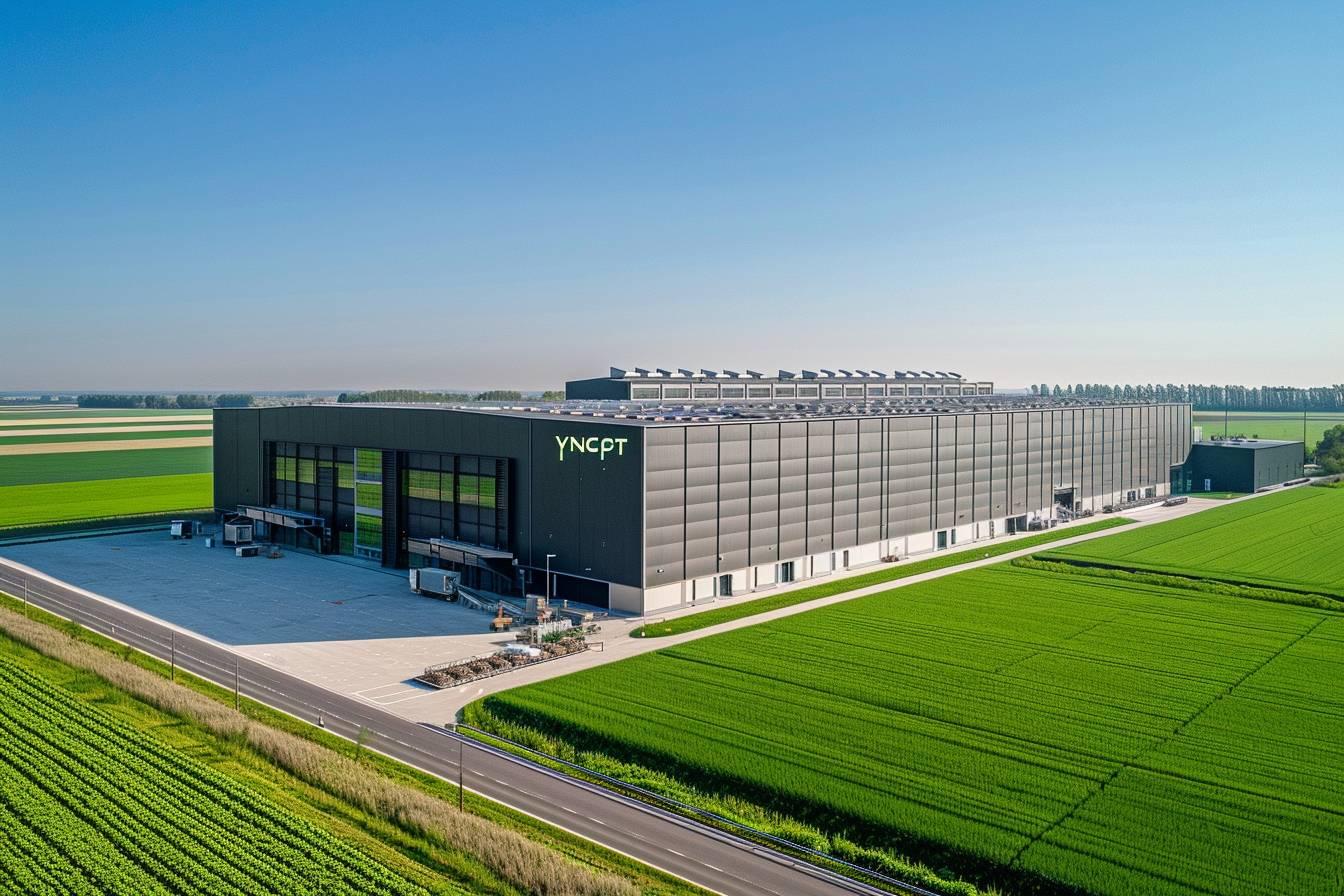Ynsect is revolutionizing the sustainable food sector with its ambitious project in Amiens. This French start-up specializing in insect farming is preparing to open the world’s largest vertical farm in the Hauts-de-France region. Let’s find out more about the challenges and implications of this innovative project for the food industry and the local economy.
A giant factory just outside Amiens: the Ynfarm project
Ynsect has chosen the commune of Poulainville, near Amiens, as the location for its new “Ynfarm” plant. This pharaonic project aims to create the world’s largest vertical insect farm, with impressive features:
- A total surface area of 40,000 to 45,000 m².
- a vertiginous height of 35 to 36 metres
- Annual production capacity estimated at between 100,000 and 200,000 tonnes of ingredients
The colossal investment of 100 million euros testifies to the scale of the project and the investors’ confidence in the company’s potential. The financing includes European subsidies as well as a public-private partnership involving the Banque des Territoires, Bpifrance and several French banks.
Commissioning of the plant began at the end of 2022, with the arrival of the first insects. The process will take several months, with the first deliveries to customers scheduled for 2024. This strategic location will enable Ynsect to benefit from local agricultural resources, notably wheat and rapeseed, while taking advantage of the proximity of Northern European ports to facilitate the export of its production.
A major economic and environmental impact for the region
Ynsect’s arrival in Amiens represents a significant economic opportunity for the region. The company plans to create 500 direct and indirect jobs over a three-year period, including 95 in the first year of operation. This injection of economic activity should have a positive impact on the whole region.
Beyond the economic aspect, the Ynfarm project is part of an approach to sustainable development and innovation in the food sector. Production will focus on two main areas:
- The manufacture of ingredients based on molitor beetles for animal feed (1/3 of production)
- Production of natural fertilizers (2/3 of production)
This breakdown illustrates Ynsect’s determination to offer alternative solutions to traditional proteins and chemical fertilizers, thereby helping to reduce the agri-food industry’s ecological footprint.

Ynsect: a technological leader in insect farming
The Amiens plant is just the tip of the Ynsect iceberg. The company is a world leader in insect breeding, thanks to its technological innovations and scientific expertise. Here’s an overview of Ynsect’s strengths:
| Domain | Achievements |
|---|---|
| Patents | Between 30 and 440 patents filed (depending on the source) |
| Technologies | Advanced use of robotics and artificial intelligence |
| Fundraising | 372 million dollars in Series C, 160 million euros for the start of Series D |
| Contracts | 175 million euros in multi-year contracts signed, 1 billion euros under negotiation |
These impressive figures testify to investors’ confidence in Ynsect’s potential and its ability to revolutionize the sustainable food sector. The company has no intention of stopping there, with ambitious expansion plans to build 10 to 15 more farms worldwide by 2030.
Challenges ahead for Ynsect Amiens
Despite its apparent success, Ynsect faces a number of challenges to ensure the sustainability of its Amiens project and its long-term growth. The company recently announced a restructuring plan involving the redundancy of 70 employees, i.e. around 20% of its workforce. This decision is aimed at achieving profitability, a crucial objective in convincing investors of the viability of Ynsect’s business model.
In addition, the company faces a number of technical and logistical challenges:
- Optimizing production processes to reach planned capacities
- Efficiently managing the raw materials supply chain
- Developing markets for its innovative insect-based products
- Overcoming potential consumer resistance to the use of insects in foodstuffs
The success of the Ynfarm project in Amiens will be decisive for the future of Ynsect, and could pave the way for a new era in the food industry. By meeting these challenges, the company has the potential to become a major player in the transition to a more sustainable and environmentally-friendly food supply.


